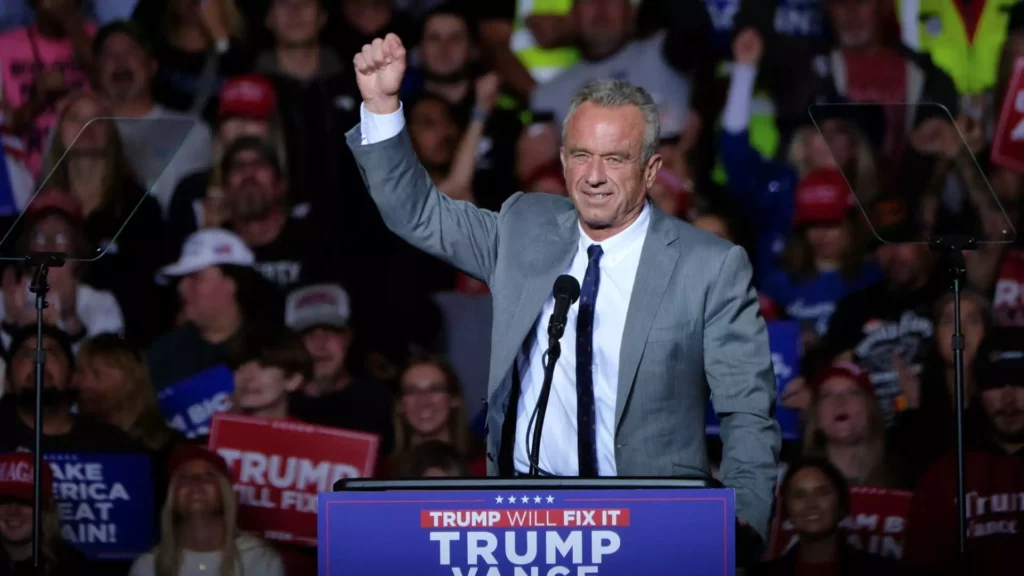The recent nomination of Robert F. Kennedy Jr. as the secretary of Health and Human Services by President-elect Donald Trump has generated waves of speculation within the financial markets. Investors are particularly focused on the potential impact Kennedy might have on public health policies, specifically concerning water fluoridation. This has stirred up excitement among dental care suppliers like Henry Schein and other industry players, signaling a transformative phase in dental health policy and its consequences for stock performance.
Henry Schein’s stock experienced a notable upswing, increasing nearly 5%—its most substantial rise since July. This surge aligns with investor expectations that Kennedy will push for the removal of fluoride from the public water system, a move that some believe could increase dental visits due to a rise in tooth decay. The premise is that if fluoride—a mineral recognized for its cavity-fighting properties—were removed, consumers would seek alternative dental interventions, creating a higher demand for dental services and products. This reasoning reflects an optimistic outlook, considering the current economic climate within the healthcare sector.
Alongside Henry Schein, other dental product manufacturers such as Dentsply Sirona and Envista also saw marginal increases in their stock prices. These movements could indicate a broader rally among companies poised to benefit from shifts in public health policy—essentially an anticipated booming of dental visits if fluoride is eliminated from public water supply.
Fluoride has long been hailed as a pivotal player in reducing cavities, yet its use has become controversial, triggering debates across various communities. Some localities have already decided to remove fluoride from their water systems, further highlighting the divided opinions surrounding its safety and efficacy. Kennedy’s recent statement on social media, suggesting that a Trump administration would advocate for the removal of fluoride from water systems, has fueled this debate. While Kennedy still needs Senate approval to step into the position, the stock market appears to be reacting to his nomination with cautious optimism.
Gordon Haskett, a firm specializing in event-driven research, has been closely monitoring the situation. Analysts predict that Kennedy’s stance on fluoride may accelerate tooth decay in the general population—an assertion that aligns with the view that market dynamics could pivot significantly based on changes to public health policies.
It’s worth noting that the enthusiasm around dental stocks contrasts sharply with the performing metrics of the overall healthcare sector. For instance, the Health Care Select Sector SPDR Fund (XLV) witnessed a decline of approximately 3.5% in November, putting it on a potentially dismal trajectory for the quarter. When stacked against the S&P 500, which saw gains exceeding 3%, it underscores the volatility and uncertainty palpable within health-focused equities.
Interestingly, the reaction to Kennedy’s nomination has not been uniform across the healthcare landscape. While dental stocks are being viewed as potential beneficiaries of changing policies, other sectors have not fared well. Pharmaceutical stocks, in particular, experienced substantial downward pressure due to Kennedy’s public persona as a vaccine skeptic, alongside heightened scrutiny on processed food companies. Don Bilson pointed out that the ramifications of Kennedy’s nomination could extend far beyond dental products, causing a ripple effect throughout various sectors in healthcare.
Despite the excitement surrounding potential changes under Kennedy’s leadership, it is crucial to approach these developments with caution. Regulatory changes, especially in public health, typically do not materialize swiftly. Analysts have suggested that implementing any new policies related to fluoride would likely take years to enact, meaning that the immediate impact on dental visit rates may not be as pronounced as suggested.
Furthermore, Kennedy’s power over such policies would likely intersect with the Environmental Protection Agency (EPA)—an agency more suited to managing drinking water standards than the Department of Health and Human Services (HHS). This adds additional layers of complexity to the situation.
While the nomination of Robert F. Kennedy Jr. seems to set off a wave of optimism for dental care stocks like Henry Schein, it is essential to consider the broader implications, market conditions, and the potential delays in regulatory changes. As investors navigate these turbulent waters, informed decision-making grounded in comprehensive analysis will be critical for capitalizing on any possible opportunities that arise out of this evolving story.

